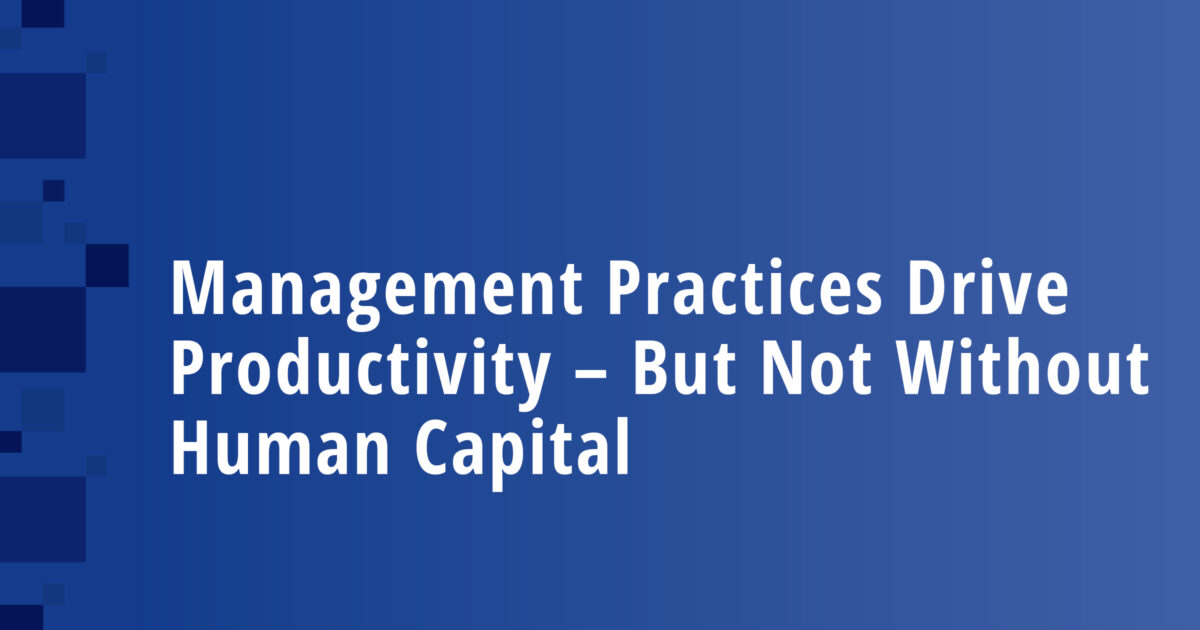
Data collected with the Finnish Management and Organizational Practices Survey (FMOP) is used to study the association between management practices and firm productivity, and to examine whether human capital intensity acts as a moderator variable for this relationship. A comparison of how well different models predict productivity from management practices and human capital reveals a linear two-way interaction between the education of managers and management practices. We find evidence that the marginal benefit of adopting more structured management practices is different for establishments with different levels of managerial human capital. Testing and accounting for this interaction is important for reliable estimation of the management-productivity relationship.
Accounting for the interaction, a 10 percent increase in the FMOP management score is found to be associated with an average of 7.1 percent higher labour productivity. Management practices can account for more than 24 percent of the observed productivity dispersion. This is close to as much as is accounted for by information and communication technologies and more than by research and development and human capital.